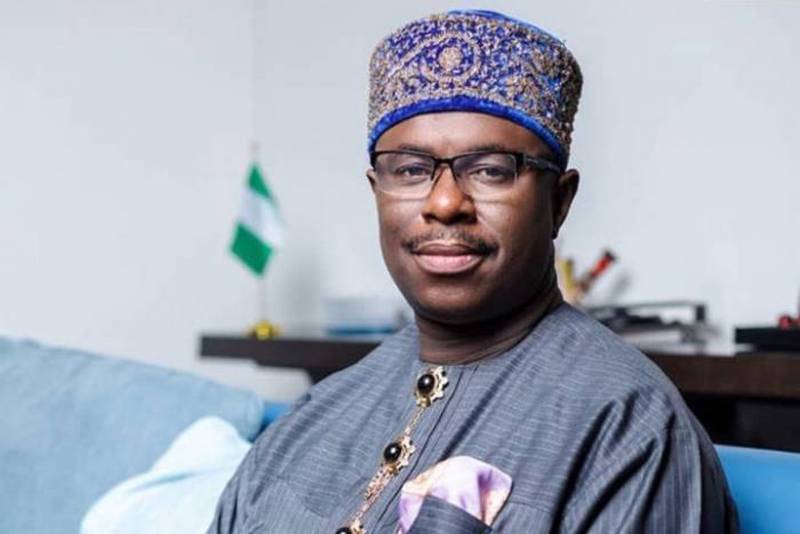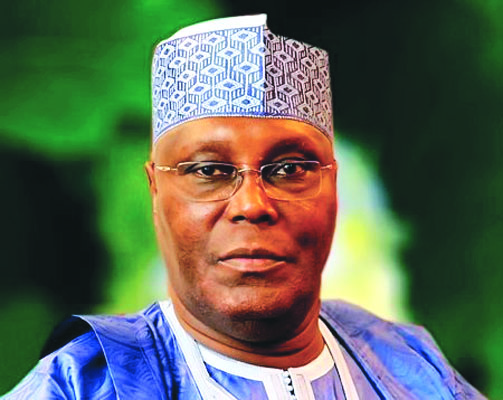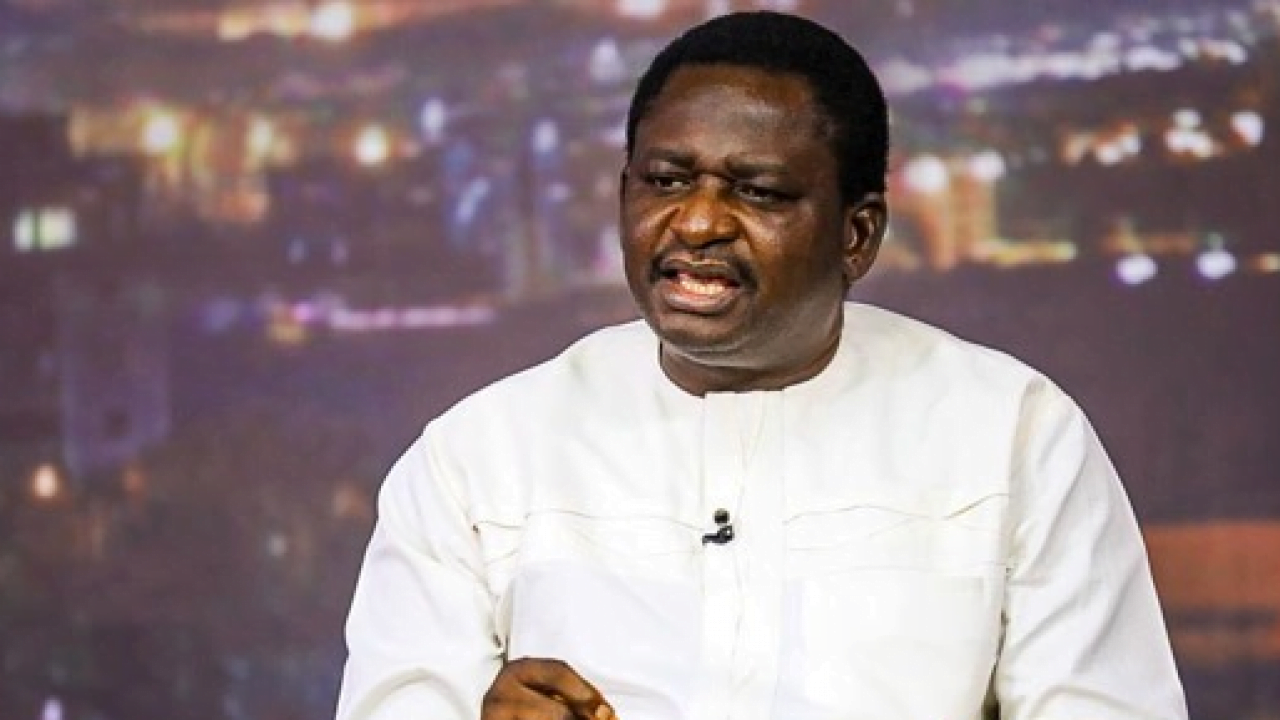Wishful thinking as a state strategy By Dakuku Peterside
It is cultural in Nigeria to wish your loved ones a prosperous new year. There is nothing wrong with having such lofty aspirations. Of concern is that, lately, this culture has crept into governance and development. Our leaders wish us a hunger and poverty-free new year.
They extend it to make statements of intent without any plan to translate the aspiration into concrete results. It is normal to hear, “We shall have stable power this year”, and “lift 50 million Nigerians out of poverty this year “. What is lacking is a measurable plan built on an overarching vision to achieve this goal.
The art of wishful thinking is shared by our government and people alike. It is one of two things among the people: either a resignation to a culture of long disappointment or a relapse into habitual superstition. The belief is that Somehow things will be alright. For the government, it is a surrender to routine and a lack of creative and deep thinking. It’s like in the prayer: As it was in the beginning! The challenge of the moment is to burst the routine bubble and venture beyond the familiar in policy thinking and service delivery.
“Wishful thinking” as a state strategy refers to adopting optimistic views without a realistic or well-founded basis. While optimism and hope are essential for motivation and national morale, relying solely on wishful thinking as a state strategy can have significant drawbacks, especially in governance and policy formulation. State strategies need to be grounded in realism, evidence, and comprehensive planning to address the complex challenges faced by Nigeria effectively.
We are currently experiencing many negatives of relying on unbridled optimism, hedonistic fatalism, and political gimmickry in dealing with matters of great importance in governance and political craftsmanship. These negatives are accentuated by the hopeless anomaly of state actors misconstruing electioneering campaign mantras or projects and programmes as a strategy. Annual Budgets or Midterm Expenditure Frameworks are erroneously deemed strategies at the national and sub-national levels. This is a farcical matter, reflecting the vicious circle of bad choices and failure of outcomes prevalent today in government.
We need an overarching vision for Nigeria and significant national strategy, goals, Key Performance Indicators (KPI),and actionable plans across the entire federal, state and LGA governance structure. It is correct that in the past, we have done some strategic or National Development Plans such as the first to fifth National Development Plans and Vision 2020. We need a clear, coherent, strategic plan driven by data and evidence and, most importantly, disciplined, transparent, and consistent execution.
Universally, we acknowledge that a goal without a plan is wishful thinking, our bane. Wishful thinking and boisterous slogans have never resulted in tangible results – compelling vision, planning, and diligent implementation of projects do. Across government MDAs and at the subnational level, we must go beyond manifesto thinking to strategic thinking and planning.
Throughout history, no nation has achieved a substantial leap without a vision, strategic thinking by its leaders, and a clear, coherent plan built on evidence and realism. China under Deng Xiaoping, Singapore under Lee Kwan Yew, and South Korea under Park Chung Hee are ready examples. On the contrary, an executive presidential system requires that government planning take the form of a political action plan and a business plan combined. No amount of whimsical, unplanned, and hurriedly reactional actions or even inactions can trump an excellent and well-articulated strategic plan judiciously executed for the sub-national or country’s benefit.
Most 36 states and local governments need actionable strategic plans, not political gimmickry. The prevailing practice is to embark on projects based on convenience, political exigency, and personal interest and wish they could translate to holistic, sustainable development.
The first major drawback of relying on wishful thinking as a state strategy is that it often leads to overestimating the ease of implementing policies or achieving specific goals. Policies may need a realistic understanding of the challenges and complexities involved in successful implementation. The runaway inflation and the problem of insecurity in Nigeria are good examples. From all indications, the previous administration misdiagnosed the national security threat posed by non-state actors, terrorists, and bandits as just a herder vs farmer conflict. This misdiagnosis created a problem of resource application. The government misdirected both human and capital resources to resolve this conflict.
As seen in recent times, the insecurity issues in Nigeria are multifaceted, hydra-headed, and humongous compared to a linear causal narrative of herder vs. farmers’ clashes. Nigeria cannot wish away insecurity. We must have a realistic diagnosis of the security situation, understand the multidimensional aspects of the problem, and put together a robust, actionable strategic plan to achieve the goals we set for our national security. Anything short of this will amount to reinventing the wheels and will not augur well with Nigeria.
Besides, unrealistic optimism results in the misallocation of resources – if the government expects positive outcomes based on wishful thinking rather than a thorough analysis, it may allocate resources inefficiently, leading to suboptimal results. The 2024 National Budget and most state government budgets have recently drawn criticisms from Nigerians, civil societies, and the media. Some aspects of the budget were either preposterous or the amount assigned needed to be revised. Although budgets do not represent a national development plan or strategy, they show how and on what all the expected income of the federal or state is to be spent. If the budget is full of frivolities and non-essentials, how can we allocate resources effectively to bring about development in Nigeria?
Furthermore, the economic consequences of wishful thinking as a strategy are all around us: cost of living crisis, collapse in the value of the Naira to USD, food insecurity, infrastructural decay,and an increasing perception of economic doom that permeates the system. Government strategic thinking, planning, and determined implementation could have given us better outcomes. This planning requires realistic assessments of the country’s economic potential and challenges. Wishful thinking leads to economic policies not aligning with the actual economic conditions, potentially resulting in economic downturns or crises – the public is disillusioned and is quickly losing confidence in the government.
Relying on wishful thinking can hinder effective long-term planning and jeopardize the country’s future stability and growth. At this auspicious time when this administration is wooing foreign investors, it behoves the government to provide a clear vision, strategic direction, and goals and implement policies and actions that will inspire confidence that Nigeria is on a trajectory to developmental growth in the midterm to long term.
Some federal parastatals, state governments and LGA leaders have put out their strategic plans, and I commend these leaders. I must specifically single out the Jigawa state government for commendation. Through my interaction with state functionaries, I noticed that the state and MDAs have their strategic plans and KPIs, and sector leaders have been made to sign performance agreements. Several policies have been developed to facilitate the state’s strategic goals. The state is ready for business!
Based on the prevalent transactional and knee-jerk approach to development intervention at all levels of government, I make these few recommendations and suggestions on moving from “wishful thinking” as a state strategy to a robust strategy that is fit for purpose and easy to implement. First, State strategies must be evidence-based. It should be based on thorough research, data, and evidence. There is no room for hunches, guesswork, or mere intuition. Second, these governments should communicate their strategies transparently and be accountable for the outcomes. Open communication about challenges and setbacks can help manage public expectations and build trust.
Third, strategic actions and policies must undergo comprehensive risk assessments. This involves identifying potential obstacles, considering worst-case scenarios, and developing contingency plans. A situation where policies are not adequately thought through may devastate people’s economy and quality of life, for example, the ill-fated Naira Redesign. Finally, strategies should be adaptable to changing circumstances, adjusting based on real-time feedback and evolving challenges.
In conclusion, while optimism and hope are essential, they should be complemented by realistic assessments and evidence-based strategies. Wishful thinking, when used as the sole basis for state strategies, can lead to adverse consequences, and governments must adopt a balanced and pragmatic approach to addressing the challenges and opportunities facing Nigeria.



